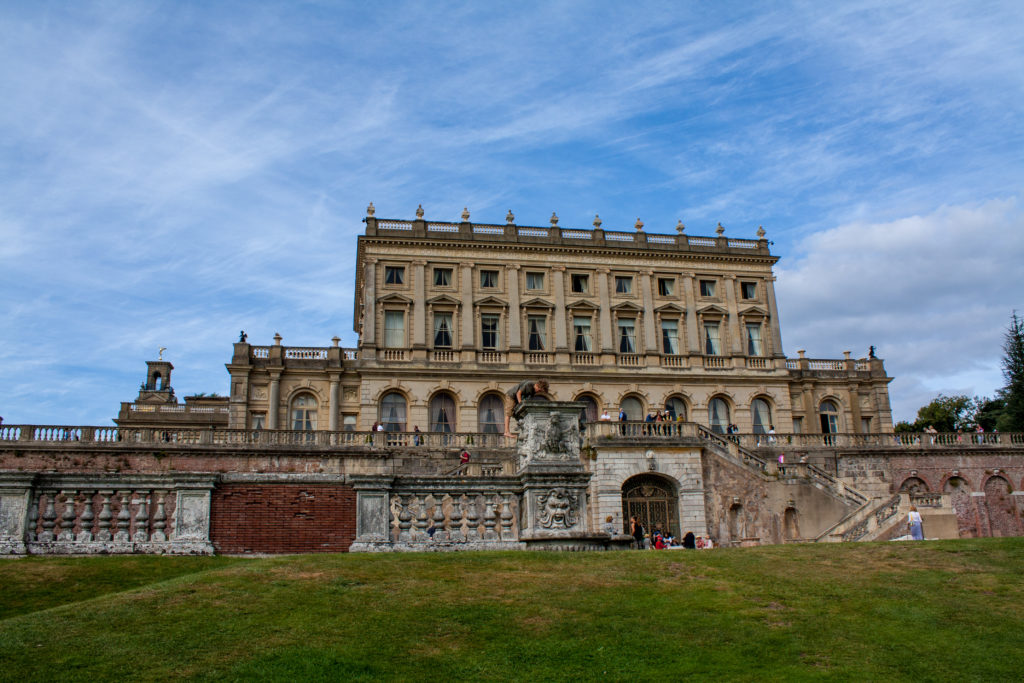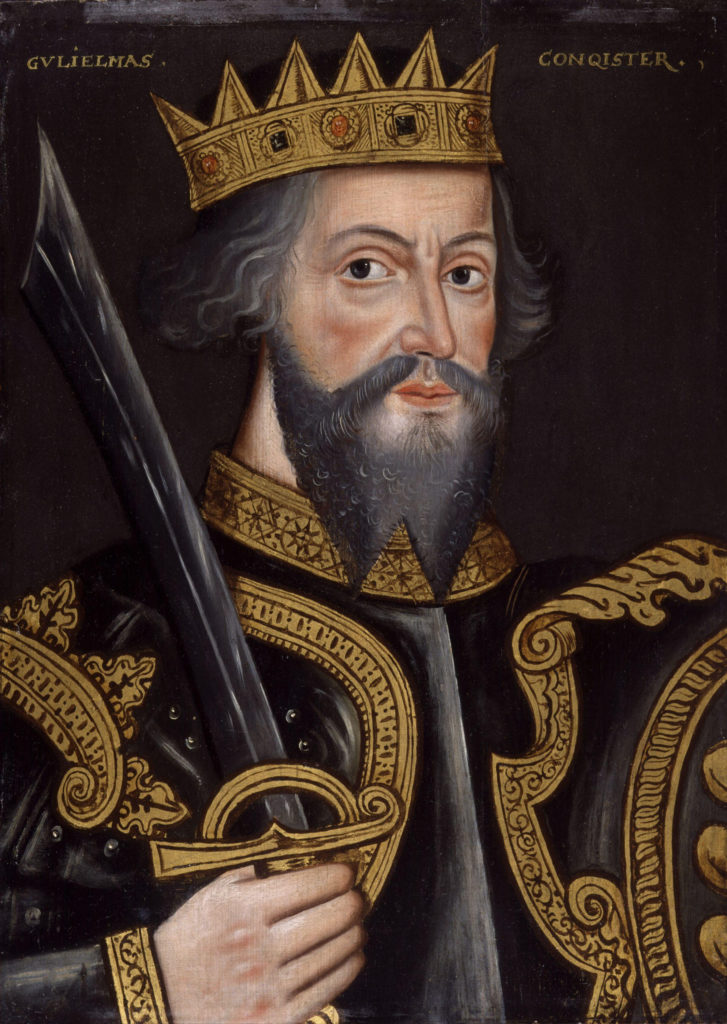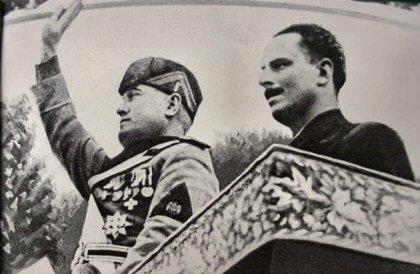
Cliveden House
The British Aristocracy, a Retrospect
Entitled: a Critical History of the British Aristocracy, Chris Bryant, 2017, Transworld Penguin, ISBN 9780857523167, reviewed by Monty Skew
Chris Bryant is a privately educated, former Anglican priest, once a Conservative Party supporter, who subsequently became MP for the Rhondda, one of Labour’s safest seats. He was also secretary of the Christian Socialist Movement. In Entitled, this Welsh MP mounts a critique of the aristocracy and their privileges.
Jack Jones, a former dockworker who rose to become General Secretary of the Transport and General Workers’ Union, once described the aristocracy as nothing more than the descendants of robber barons and trollops. Bryant expands on this list of their supposedly negative qualities. He includes insatiable greed (they own one third of the land), jealously guarded wealth, pride and arrogance and ostentatious display (such as monuments). He may be right but his text does not sustain the argument.
The history of the aristocracy is the history of this country but it is not all the history. The early chapters on the Normans and Plantagenets, with a description of feudal land tenure, are useful and highlight one of the lesser known continuities of history. But the slender argument runs aground with an over-detailed account of families, their squabbles, marriages etc. None of it adds to an understanding of the historical forces at work.
The author lists the great families, gentry and mercantile, and their control of land. And how families survived upheavals, including the Cromwellian period (there were aristos on both sides) and prospered through astute alliances and marriages. But this was precisely the process that occurred in republican countries, notably France post-1789, where the aristocracy, while not proclaiming itself as such, still owns its lands. The author’s presentation of lineages sounds at times like a Biblical chronology of the ‘begat’ type.
Aristocrats take a long-term view of fortune. Yet in a book as detailed as this there is only a cursory examination of primogeniture, the crucial factor in maintaining settled estates in the long term. It surely deserves more than three paragraphs. And this is no a small matter. In many hierarchical societies, for instance Saudi Arabia with its several thousand princes, the absence of primogeniture is the crucible of serious but hidden conflicts. Conversely, those royal houses which have survived longest have been based on primogeniture, as in Japan.
Another crucial factor was/is the ruthlessness of the British aristocracy in dealing with threats and opportunities. Short shrift was given to black sheep who were sacrificed for the good of the family fortune. Spartan principles prevailed. Weaker elements were either sent to their deaths in wars or were hidden from view. As in France and Italy, ecclesiastical offices were bought for the less able while political and legal offices went to the brightest.
Although burdened with too much detail, certain important historical items are summarised briefly. Magna Carta is given cursory attention. It was not the key event in the evolution of freedoms. It consolidated the feudal power of barons and increased their land holdings and incomes more than it entrenched any supposed liberties. Other relevant historical events are not examined, while the English Civil War and Glorious Revolution are discussed in a few lines. (n.b. The Act of Settlement was 1701 not 1702).
The British aristocracy was uncompromising when dealing with challenges to their authority and privilege. When in power, they displayed an utter ruthlessness, as during the Gordon riots (led by an errant peer) which were followed by rapid trials and drumhead executions.
Bryant is not over-familiar with his subject. Not all aristocrats are titled and some titles became extinct precisely because of primogeniture. And many ‘aristocratic’ titles have been bought by mercantile families. The Vestey family bought their title from Lloyd George in the 20s. He notes that they pay little tax. But this was not because of being titled but because of over generous corporate tax regimes.
Bryant considers leasehold the crucial way that large estates were kept in the family. But leasehold did not only benefit the titled estates. The Crown, the Church and charities also profited from leasehold which reverted to the original freehold owner, while generating long-term rents. This is one of the reasons why the land composition of the country has not changed much. At the same time, the changes in tenure have been sudden. When leasehold enfranchisement emerged it reduced their asset value in some cases but they made new complex arrangements to avoid it.
Even an aristocracy can fall on hard times. And so they have adopted the practice of marrying for money when necessary. This seems to happen in every other generation. For instance, in late C19 relatively impoverished families joined the new American rich who hankered after titles (see The Pilgrim Daughters, by Hesketh Pearson). But the titled also pioneered pre-nuptial agreements under different guises when it suited them.
The question of inbreeding is mentioned only once but the aristocracy largely resolved this issue by having illegitimate children by their servants. And sometimes by allowing children to be sired outside the family. For legitimacy did not trouble the aristocrats. William 1, aka William the Bastard, was himself illegitimate. Nobility also created fictitious genealogies.

King William I
The power and wealth of the British aristocrats grew post-Reformation. And with the expansion of empire, slavery and industrialisation, they entered into a partnership with investors and merchant adventurers. All this has been admirably described by David Cannadine.
How has the British aristocracy managed to sustain its wealth and its position despite upheavals? What was the social structure which enabled it to do this? There are Marxist, Paretian and Weberian explanations but Bryant does not address them.
The aristocracy in the past provided social leadership in the arts and championed social reform. Some of the leading families (not all were titled), such as the Russells, Lord Wilberforce and Lord Shaftesbury provided such leadership. Aristocrats tend not to care what other people think and are not swayed by popular opinion. This is one of the few arguments in favour of an aristocracy.
But the decline of the aristocracy proceeded pari passu with that of the country. WW1 decimated the class – many died in the trenches. And death duties meant substantial properties had to be sold. Staff could no longer be recruited to run large stately homes. Significantly, too, much inherited land was never registered and land ownership was more concentrated than now. The Administration of Estates Act in 1925 rectified this.
The decline of the aristocracy may be viewed through the prism of the Bloomsbury Group, some of who were related to landed gentry. Their well-documented decadence preceded their social decline. They were able to flout the establishment because they were part of it. With the end of deference, the private tastes and habits of the elite attracted media attention and became public property. Examples are the Wildeblood/Montagu case in 1954, concerning sexual activities at Lord Montagu’s Beaulieu estate, which hastened the decriminalisation of homosexuality. And the Profumo case centred around Cliveden, the Astor (title bought) family seat.
One fascinating historical detail is the aristocracy’s flirtation with fascism. Sir Oswald Mosley, 6th Baronet, leader of the British Union of Fascists, was self-evidently an aristocrat. However, opposition to fascism was also aristo-led. The contradiction is that fascism itself denounced aristos, in particular the elderly, decadent elites who had destroyed their world during and after WW1.

Oswald Mosley with Mussolini
There is one historical episode which the author gets wrong, to wit, the crucial few days before Churchill became PM in May 1940, the subject of much subsequent speculation. According to Bryant, Lord Halifax gave way to Churchill because he was not an MP. In fact, Churchill was aware of the machinations within the Tory party and the ebbing support for Chamberlain. He also knew that Halifax might have supported an attempted armistice and engaged in secret negotiations with Germany. In the event, Churchill invited Labour leaders Attlee and Arthur Greenwood to join a coalition to continue the war. From the beginning, Churchill was a coalition not a party leader. Attlee served as Churchill’s loyal and trusted deputy. Halifax was skilfully sidelined.
In a book largely about land ownership, former priest Bryant (ex Oxford) strangely does not mention the fact that after the Crown and the Church of England, the largest landholdings are held by Oxbridge colleges and five big public schools. Much of this itself was originally bequeathed by aristocrats (and other alumni) and enables these institutions, like aristos, to live on rents.
Bryant describes aristocracy as if it were a united body vis- a- vis the rest of society. But his whole narrative indicates the opposite and that they engaged in violent conflicts and more lately developed divergent interests. In recent decades, there has also been a wealth based shake-out within the aristos. Those with renteable assets have become wealthier. But largely because of rocketing property prices some families, with only one residence, have been hard hit with rising and inescapable IHT. Homes which have been in continuous occupation for generations have had to be sold. That of the Lords Lovat is a prime example.
Land has become less central to the creation of wealth but more central to its maintenance and expansion. There is another factor. Financialisation has also meant that long-term, low interest rates allowed those already in possession of assets to accrue much more through the purchase of assets by leveraging existing assets, at much lower cost. So there has been a transfer of wealth to those who already have it including but not limited, to the landed aristocracy. In some ways the minority of the landowning aristocracy is richer than ever before and is living on rents. But they are adapting to circumstances. Increasingly they are going into partnership with hedge funds or pensions funds, thereby further protecting their assets. Indeed, the whole of society has become rent-seeking. The aristocratic prerogative has become the norm. Such dependence on rent-based income streams does not bode well for the future.
Bryant contradicts himself. He claims that aristos like to display wealth but then, subsequently, that they are invisible, discrete and avoid ostentation. Which assertion is correct? He notes that families have given properties to the National Trust while retaining permanent use of some space in the ancestral home. Is this a clever ruse, as he suggests, or a typically English compromise which allows public access? The alternative would have been to convert or demolish some of the jewels of British architecture.
The author, likewise, disapproves of the daily fee paid to peers who attend the Lords. But the majority of those who attend, whether or not they take part in proceedings, are life peers. Many are former MPs. They are not the aristocracy at all. All but 92 hereditary peers were removed from the Lords in 2004. The generous fee paid to peers may be an anomaly but it is nothing compared to other injustices of the tax system.
Incidentally, records indicate that Bryant as MP was not himself hesitant in claiming expenses. He claimed over £92,000 in expenses in the five years leading up to the 2009 scandal over MP’s expenses. During that time he flipped his second-home expenses twice, claimed mortgage interest expenses that started at £7,800 per year before rising (after flipping) to £12,000 per year. He also claimed £6,400 in stamp duty and other fees on his most recent purchase, and £6,000 per year in service charges.
Bryant ends his diatribe by citing peer Rhodri Phillips, who invited someone ‘to run over Gina Miller’, the pro-EU campaigner. He was sentenced to 12 weeks imprisonment. Bryant thinks that Phillips should lose his title. But he wants to take away titles from every peer!
Entitled is a potted history of Britain reminiscent of its author’s namesake, Arthur Bryant. Its focus throughout is on the selfish behaviour of the aristocracy. But the real tragedy of the aristocracy is that they should act as an elite but, like the rest of society, have adapted to the reality of a declining country and to their own role in this decline. As Britain faces an uncertain future and further upheaval, perhaps even break-up, they have much to reflect on.
As I write this review, I am considering whether to attend the ‘Game Fair’ at Hatfield House, seat of the Cecils. It is much more than a game fair, being a showcase for traditional crafts, beers, specialised services etc. and for Hatfield House itself, now a wedding venue. So even aristocrats, as social critic Peter York points out, now have to work for a living. Indeed, the children of the aristocracy have arguably become the higher servant class for the new, super-rich oligarchs.
Editorial note; Monty Skew is a pen name











There are producers and parasites, good people and bad, at all levels of society.
There is a difference between “aristocracy” and many “aristocrats”.
Chivalry and duty have been positive virtues “down” the “social scale”, reinforced by religion, education and military service.
As for Mosley, he was a maverick, whose first marriage had senior royals among its guests, but who expressed distaste for the pomp of the ruling castes and who once remarked sarcastically that the Labour Party “loved a Lord”, as a mixture of Snobbism and Spartacism. If anyone wants to know what he really thought and actually said about the social system, or anything else, wise or wicked, they should read the enormous quantity of his writings and speeches throughout his lifetime; you won’t get accurate and comprehensive information from his enemies, or shallow detractors, or the latest rubbish about the “far right revival” from the “no-platformers”. One thing is clear: he cannot be blamed for the mess made by his opponents.